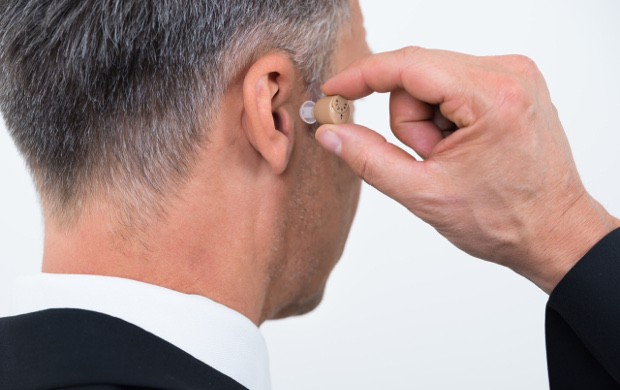Hearing loss, especially age-related hearing loss, is a common condition that affects many job seekers. Here is a how-to guide that will help to better manage the situation and improve your job interview chances.
Remember that your hearing loss is not the whole you; you should promote all the other parts of yourself that will get you the job. Overall the aim of any interview is to present the best impression of yourself and convince the employer that you are capable of doing the job.
Easiest thing to do:
Use a hearing aid—out of the UK’s 9 million people with hearing loss, only 1.4 million wear hearing aids.
Hearing aids are small micro-engineered computers that can amplify external sound to a suitable level. Hearing aids come in all different shapes, sizes and types. However, all hearing aids work in a similar way. They have a built-in microphone that picks up sound, which is processed electronically in the hearing aid. The resulting ‘signals’ are then passed on to a receiver—like a tiny loudspeaker—where they are converted back into louder sounds that you can hear.
How to tell a potential employer about your hearing loss
Hearing loss is a common condition and it’s a good idea to disclose your condition to the interviewer to avoid unexpected concerns and misconceptions. Employers have a responsibility to make reasonable adjustments for interviews and employees.
- Be prepared—Anticipate the potential questions an interviewer may ask about your hearing loss and how it will impact the job. Be prepared with responses to those questions.
- Be positive—Use “I” language to refer to your hearing loss and emphasise your capabilities. Don’t say “I am hard of hearing” or “I have hearing loss” and stop there, instead say “I have hearing loss and…”, then offer a brief explanation such as “I have hearing loss and I wear hearing aids to help me hear better.”
How to deal with phone interviews:
- Ask for a written interview instead—Employers will often conduct a telephone interview to shortlist suitable candidates for a face to face interview. If you have difficulty with telephone interviews due to hearing loss, you should be open about your hearing loss and request a written interview by email. Employers have an obligation to make reasonable adjustments and will often make reasonable adjustments to meet your particular circumstances.
- Overcome technical limitations—This applies to everyone, not only people with hearing loss. We all have difficulty hearing people on the phone at times, which may be due to a weak signal when using a mobile device or due to a noisy background. Take this into consideration when scheduling your phone interview. Make sure you are in a quiet place that you know has good signal.
- Use a telephone aid—There are plenty of devices that can amplify sound to a level which will allow you to hear the other person on the line. These are called ALDs (or assistive listening devices) and for a job interview by telephone, an external amplifier or extra loud phone will do the job. You may also find it useful to conduct the interview in a quiet room where you can focus on listening to the interviewer rather than background noises.
- Have a mock interview—If it’s your first interview by phone or you are using a new telephone amplifier, it’s a good idea to have a mock interview. The interviewer can be a friend, family member or interview coach and they can ensure you are ready for the real deal.
How to manage to face-to-face interviews:
- Position yourself for success—when given the option of where to sit, take the seat right opposite the interviewer. You will then be able to lip read, a common technique used by the hard of hearing to fill in the gaps based on the overall topic. Ask the interviewer to close the door if necessary.
- Fill in the gaps—don’t strain to hear every word. People with normal hearing miss words during an interview as well and ‘fill in’ the missing words to understand the concept. You should use the same strategy.
- Think about your body language—The best way to be aware of your interview body language is to practice in front of a mirror. Also pay attention to the interviewer’s body language. You ideally want the interviewer to be doing the same things you are, such as maintaining eye contact, nodding, smiling and leaning forward.








